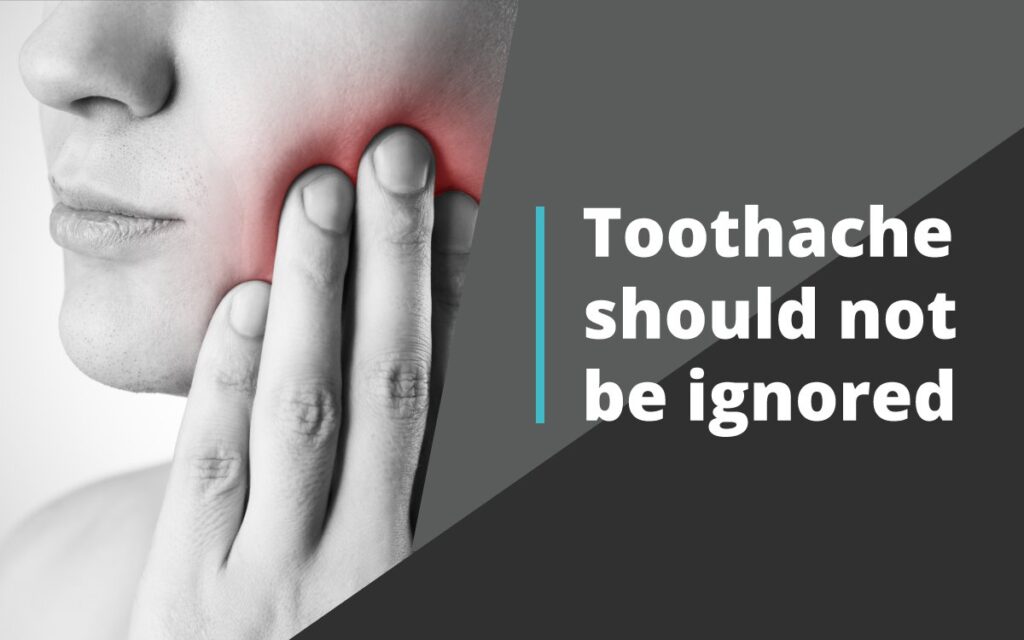
What Happens if You Ignore a Dental Emergency?
Have you ever experienced a sudden toothache but decided to ignore it, thinking it will go away on its own? Or have you postponed your dental appointment even though you’re experiencing severe pain or discomfort in your mouth? If so, then this blog post is for you. In this article, we’ll explore the consequences of ignoring a dental emergency and why seeking immediate treatment is crucial. So buckle up and read on to learn more!
Serious Consequences to Ignore a Dental Emergency
If you’re experiencing a dental emergency, it’s important to seek professional treatment right away. Ignoring a dental emergency can lead to serious consequences, including:
1. Infection
If you have an infection in your tooth or gums, it can spread to other parts of your body if left untreated.
2. Damage to Your Teeth:
When you ignore a dental emergency, the problem is likely to get worse. This can lead to permanent damage to your teeth or even tooth loss.
3. Pain
Dental emergencies can be extremely painful. The longer you wait to seek treatment, the more pain you’re likely to experience.
4. Swelling
Swelling is a common symptom of many dental emergencies. If left untreated, the swelling can become severe and even affect your breathing.

5. Gum disease
Dental emergencies that are ignored can lead to gum disease. This serious condition can damage your gums and teeth, and it may even lead to tooth loss.
6. Heart disease
There is a link between oral health and heart disease. If you ignore a dental emergency, you may be increasing your risk of developing heart disease.
Dental Emergency Warning Signs
If you are experiencing any of the following dental emergency warning signs, it is important to seek professional help immediately:
1. Bleeding that won’t stop – This could be a sign of a serious underlying condition and requires immediate attention.
2. Pain that is severe and/or persistent – Dental pain is usually a sign of an infection or other serious issue.
3. Swelling in the mouth or face – This could be indicative of an abscess or other serious issue.
4. A tooth that has been knocked out – If you act quickly, there is a chance that the tooth can be re-implanted. However, time is of the essence so don’t delay in seeking help.
5. cracked or chipped tooth – Depending on the severity, this may or may not require immediate attention but it’s always best to err on the side of caution and seek professional help right away just to be safe.
Advice for Dealing with Dental Emergencies
“If you have a dental emergency, it is important to seek treatment as soon as possible. Ignoring an emergency can lead to serious consequences, including infection, tooth loss, and damage to the jawbone.
If you are experiencing a dental emergency, the first step is to contact your dentist. If you do not have a regular dentist, you can find one in your area by searching online or contacting your local dental society. Once you have found a dentist, make an appointment for an evaluation as soon as possible.
In the meantime, there are some things you can do to manage pain and discomfort. For example, rinse your mouth with warm water and take over-the-counter pain medication if necessary. If you are bleeding, apply pressure to the affected area with a clean cloth.
It is also important to avoid eating hard or chewy foods until the emergency has been treated. Doing so can further damage the affected tooth or tissue.”
Source – Howcast
Professional Treatment for Severe Cases
If you’re experiencing a severe dental emergency, it’s important to seek professional treatment immediately. Waiting too long to get treatment can result in serious complications, including infection, permanent damage to your teeth, and even death.
When you arrive at the dentist or hospital, you’ll likely be seen by an oral surgeon who will assess the severity of your condition. If you have an infected tooth, they may need to perform a root canal to clean out the infection and save your tooth. In some cases, they may need to extract the tooth if it’s too damaged to save.
If you have a broken jaw, you’ll need to have it reset by a qualified oral surgeon. This is a serious procedure that should only be performed by someone with experience. Recovery from a broken jaw can take several weeks, during which time you’ll need to eat soft foods and keep your mouth clean to prevent infection.
Whether you’re facing a minor dental emergency or something more serious, it’s important to get professional help right away. Ignoring an emergency can have major repercussions for your health, so don’t delay in seeking treatment!
Conclusion
Ignoring a dental emergency can be incredibly dangerous and lead to more serious issues such as infection, jaw pain, and tooth decay. It is important that you contact your dentist right away if you are experiencing any sort of dental emergency so they can diagnose the problem and take care of it before it becomes worse. Taking action quickly is key when dealing with a dental emergency so ignoring one could possibly put you at risk for further health complications in the future. Make sure to protect your oral health by seeking professional help if needed!
FAQ
If you have a toothache that lasts longer than one or two days, or you have other symptoms like fever, swelling in your face or jaw, or pus coming from the affected area, you should see a dentist as soon as possible.
Emergency dentists can sometimes help with TMJ pain if the pain is due to a problem with your teeth or jaws. However, if the pain is due to another cause, such as stress or arthritis, an emergency dentist will likely not be able to help.
Pregnant women are more susceptible to gum disease and cavities. They may also experience morning sickness which can lead to vomiting and stomach acids damaging the enamel on their teeth. It’s important to keep up with good oral hygiene habits and see a dentist regularly during pregnancy.




